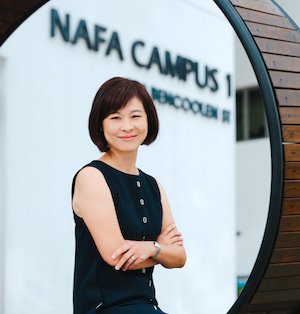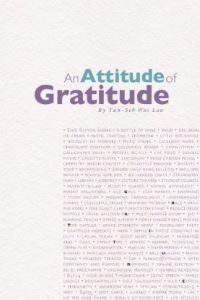It isn’t easy to be a kid, let alone a parent, in the 21st century. With growing societal expectations for children to excel not just academically, but also holistically, there is much pressure placed on them to fit the mould. As a result, there have been many concerns voiced by parents in recent discourse pertaining to contemporary education.
Former Prime Minister Lee Hsien Loong has said that “we have been trying to balance the system so that you can moderate the pressure – so that you can work hard, without feeling ‘buay tahan’, cannot take it anymore.” But it begs the question – how can parents do better to navigate societal expectations so that children have the capacity to learn and grow on their own terms?

In this 2-part series, we speak to Mrs Tan-Soh Wai Lan, President of the Nanyang Academy of Fine Arts (NAFA), University of the Arts Singapore, former principal of CHIJ St. Nicholas Girl’s School and Anderson Secondary School, and lifelong educator, mother and the author of An Attitude of Gratitude (more info below), on what it means for parents to ‘want the best’ for their children, and how they can empower and uplift the future leaders of our generation.
Academic success is not the be-all and end-all

To be a teacher is to be the greatest advocate for our kids. In that aspect, Tan-Soh Wai Lan has never wavered in that mission. Having dedicated her entire life championing the potential of her many students, she understands, probably more than most, that success is never one-dimensional.
This perspective can often take a back seat when parents here are faced with a barrage of societal pressures for their children to excel academically, according to Wai Lan, especially when academic achievements are still the key determiners of social success.
A parent herself, Wai Lan knows that this parental approach is well-intentioned, albeit misunderstood. “To me, I believe that all parents want the best for their children,” she affirms, “but how do we measure ‘best’ as a benchmark? Is it the prestige of the school they attend? Or the number of A’s on their report card?”
“It is so important that we remember that learning is an ever-continuous journey for all of us. Sure, we all have goals and aspirations. But an inability to meet them in one instance doesn’t mean that it’s the end of the road. We learn our best lessons from the bumps in the road – but only if we take a step back to re-evaluate and introspect on these opportunities to learn more about ourselves and how we can do better,” she assures.
And this isn’t purely conjecture for her; Wai Lan has had her own fair shares of setbacks to deal with. She refers to an instance she described at length in her book, An Attitude of Gratitude, when she felt lost after being left out of a promotion. “My peer was doing really well and was promoted the year before. Everyone else expected it to be my turn this round, but it was not to be. I felt discouraged for a while. I was lucky, however, that I had amazing mentors who were nothing but supportive of me. My ex-boss said something to me back then that really resonates with me until today – ‘Your finishing line is still far ahead. Although your peers may be ahead of you now, nobody knows who will run the longer race in the future and who will reach the finishing line first’. She encouraged me to continue to stay true to myself and never stop learning and growing.”
She emphasises that while it is important to learn from their failures, they should also never forget to celebrate their successes, no matter how big or how small. “Our children should grow up feeling proud of their many strengths. While pushing them to be their best selves, we should also remember to instil in them a great sense of self-confidence,” she says.
Ultimately, it makes a great difference when parents are not just the child’s most passionate coach, but also their most enthusiastic cheerleader.
Times are constantly changing

A question that is as timeless as it is perplexing often spurs local discourse surrounding education – Why is academic excellence so ingrained in our society as the ultimate measure of success?
Wai Lan ascribes this sentiment to cultural consensus. “All society is reinforced by foundational values. And when these values come with measurable expectations, it is natural that we want to meet or even exceed them. In our culture, we have always placed a great amount of importance in tangible and measurable outcomes,” she shares.
That said, culture is anything but constant. Our everyday lives have been transformed by social trends and developments, and our perspective of our cultural values shift accordingly. “I realised how as parents, we tend to impose our own life experiences onto our children, albeit unintentionally. But the environment that we grew up in has changed rapidly for our children that the cultural dynamics we once understood may no longer exist,” she elaborates.
Wai Lan also notices this through her interactions with more senior family members. “For some of them, it’s very difficult to grasp the functionality of a smart TV, because it simply isn’t something they grew old with. In contrast, kids adopt technology so organically as if they are second nature.”
It may seem daunting for parents to fully understand their children’s point of view, but Wai Lan believes that practising active listening goes a long way. “To me, it is one of life’s simplest, yet greatest joys to do what we love. The biggest gift we can bestow on our children is to learn what they are passionate about, and how we can support that ambition. School results are still the primary indicators of their literary and numeric comprehension, but there is more room than ever for other cognitive skills to prosper, such as emotional and cultural intelligences.”
She believes that through active listening, parents can better appreciate their children’s strengths and provide them with means to expand on them. “Now that I’m at NAFA, I have been blown away by the potential and passion shown by students when they are in an environment that aligns with their strengths and skillset. I often tell them, “Before this, you were fishes asked to climb a tree. Now, you are in a serene pond where you can truly flourish.”
Endless learning possibilities

Outside the classroom, there is also an abundance of experiential learning opportunities During her tenure as a teacher and principal, Wai Lan recalls having to assuage the concerns of anxious parents about the optimal Co-Curricular Activity (CCA) for their child. “Of course, it is good to have your own preferences. But if you open yourselves to alternative possibilities, the world becomes your proverbial oyster!” she advises.
In fact, Wai Lan wouldn’t have had the musical education during her time as a student if not for a serendipitous encounter with her senior. She had never thought of herself as a musician, but with her senior’s encouragement, she joined her school’s brass band. Wai Lan found herself learning how to play various instruments such as the trombone as well as managing the club as Band Leader. Today, as President of Nanyang Academy of Fine Arts (NAFA), University of the Arts Singapore, she taps into this invaluable exposure to build rapport with her faculty and the many designers, visual and performing artists who attend the instituition.
“It is amazing how life can come back full circle. If we spend less time worrying about the most favourable way forward, and more time embracing the learning journey itself, we allow ourselves the opportunity to explore new insights, new methodologies, and new interdisciplinary connections! Just look at Steve Jobs – the calligraphy class he decided to attend has inspired a legacy of beautiful typography for computers.”
Look out for the second half of this interview with Mrs Tan-Soh Wai Lan, where she shares about empowering our children.
 “An Attitude of Gratitude” is a heartfelt tribute to the many blessings Mrs Tan-Soh Wai Lan has experienced throughout her remarkable life journey. The book chronicles the various roles she has undertaken — often simultaneously — as student, scholar, teacher, mother, school leader, and now, author. She reflects on how a spirit of gratitude has shaped her passionate commitment to nurturing our greatest resource: youth. Get her book from the Straits Time Press at stbooks.sg/an-attitude-of-gratitude
“An Attitude of Gratitude” is a heartfelt tribute to the many blessings Mrs Tan-Soh Wai Lan has experienced throughout her remarkable life journey. The book chronicles the various roles she has undertaken — often simultaneously — as student, scholar, teacher, mother, school leader, and now, author. She reflects on how a spirit of gratitude has shaped her passionate commitment to nurturing our greatest resource: youth. Get her book from the Straits Time Press at stbooks.sg/an-attitude-of-gratitude
Want more articles like this, and other lifestyle content right in your inbox? Download the new SAFRA mobile app and opt in for the eNSman Newsletter – you don’t need to be a SAFRA member to subscribe – and never miss another story!







